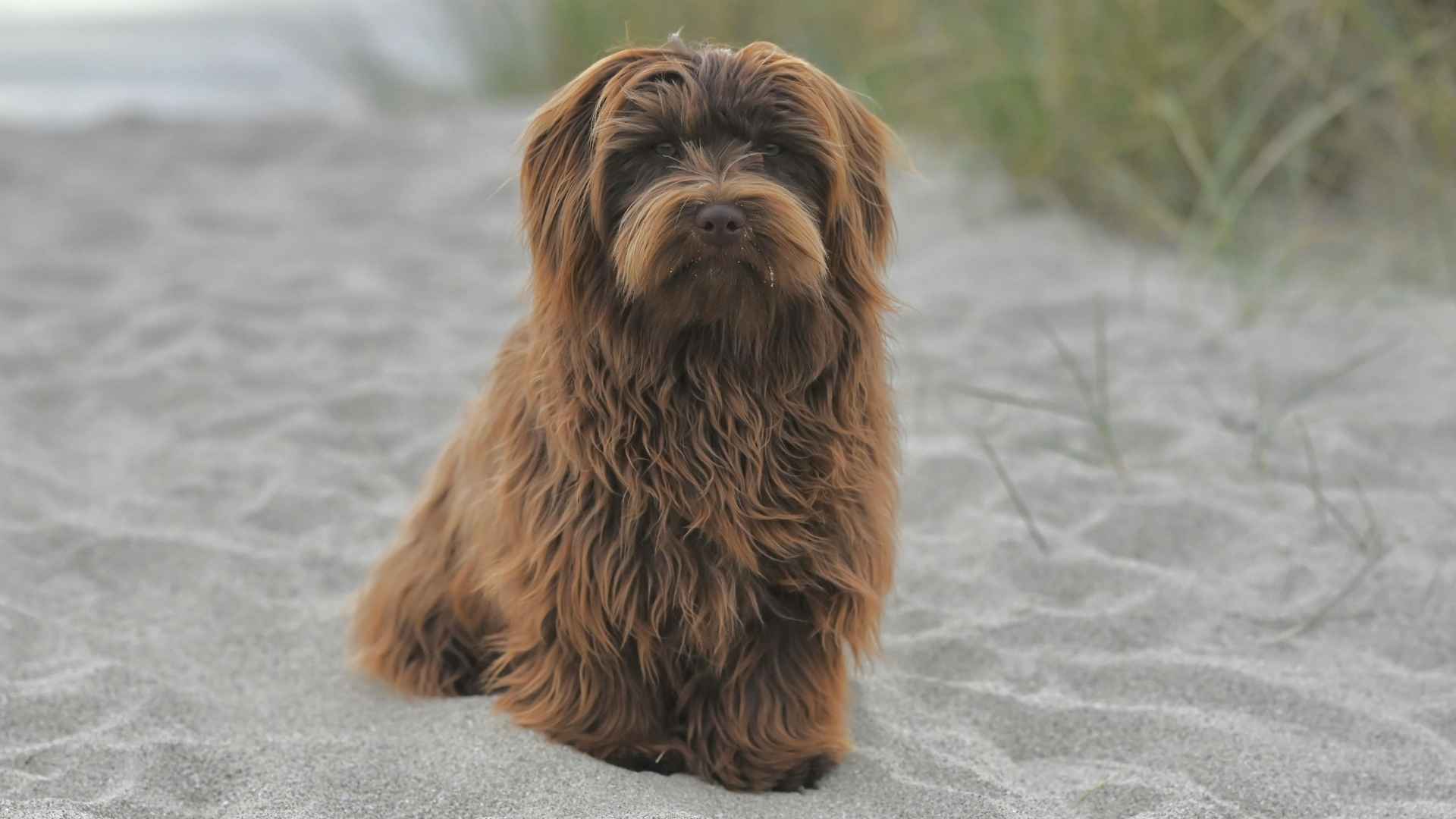You know the smell. It hits you when you walk into someone’s house, ride in their car, or lean down to pet their dog. That strong, earthy, unmistakably “dog” scent.
For some, it’s tolerable. For others, it’s a dealbreaker. And if you’re thinking of getting a dog—or already have one—you’ve probably wondered if it always has to be like this. The truth? No, it doesn’t.
While some breeds are just smellier by nature due to oils, drool, or dense coats, others are impressively clean and odor-free. You don’t need to mask the smell with candles or room sprays. You just need the right dog.
Whether you live in a small apartment, have a sensitive nose, or simply like your home smelling fresh, this guide is for you. Stick around as we introduce you to the dog breeds that stay fresh—naturally. These dogs won’t stink up your space, your sofa, or your life.
Dog Breeds With Minimal Dog Smell
1. Basenji
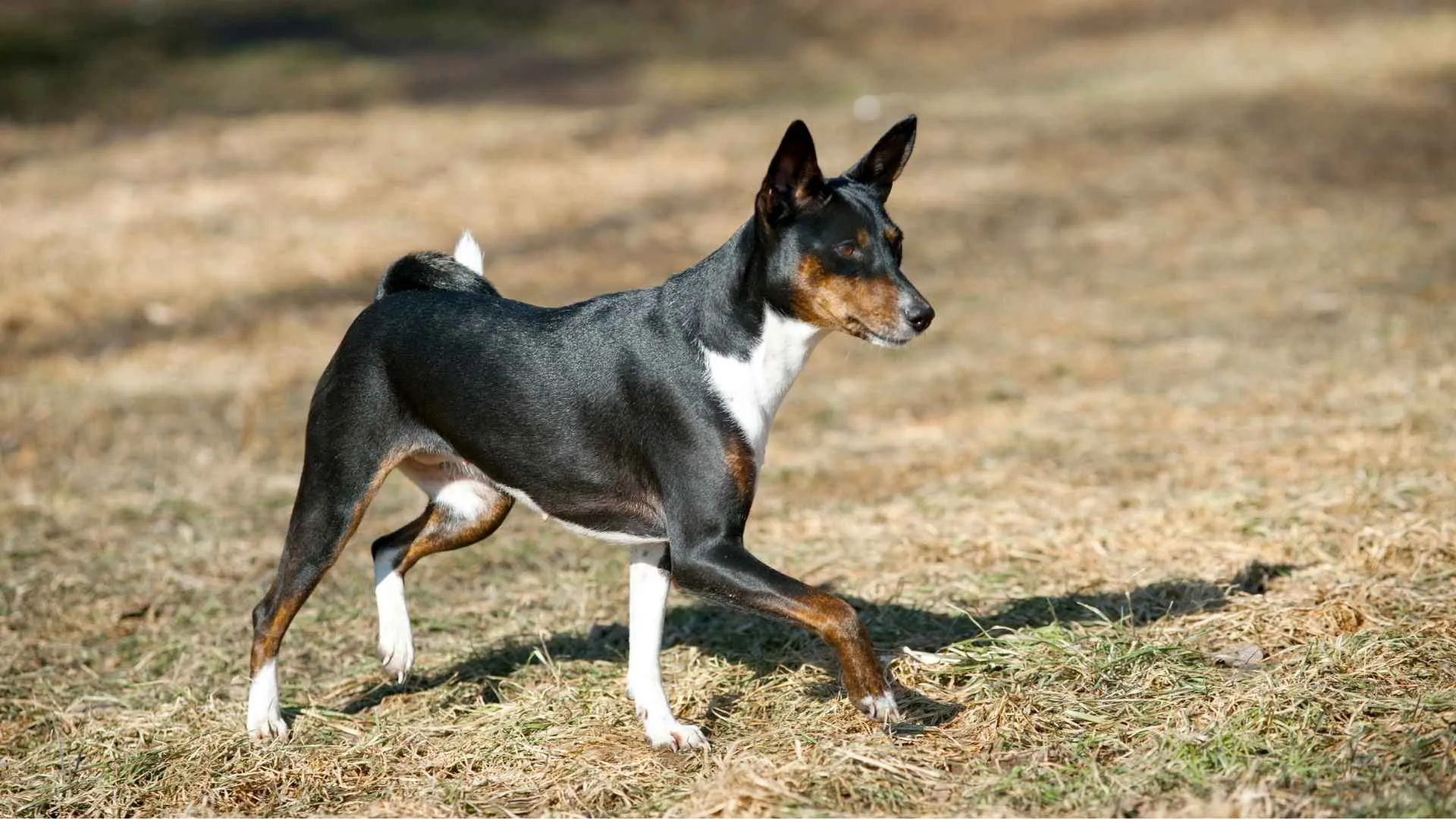
The Basenji is often ranked among the least smelly breeds, thanks to its self-cleaning habits that resemble those of a cat. It doesn’t carry the typical “doggy” scent even after outdoor activity. This makes it an ideal choice for scent-sensitive households.
Low-maintenance coat care
It’s fine, smooth coat doesn’t trap odor or dirt, making it incredibly easy to maintain with minimal effort. Even without frequent bathing, it stays impressively fresh. This trait reduces the need for constant cleaning routines at home.
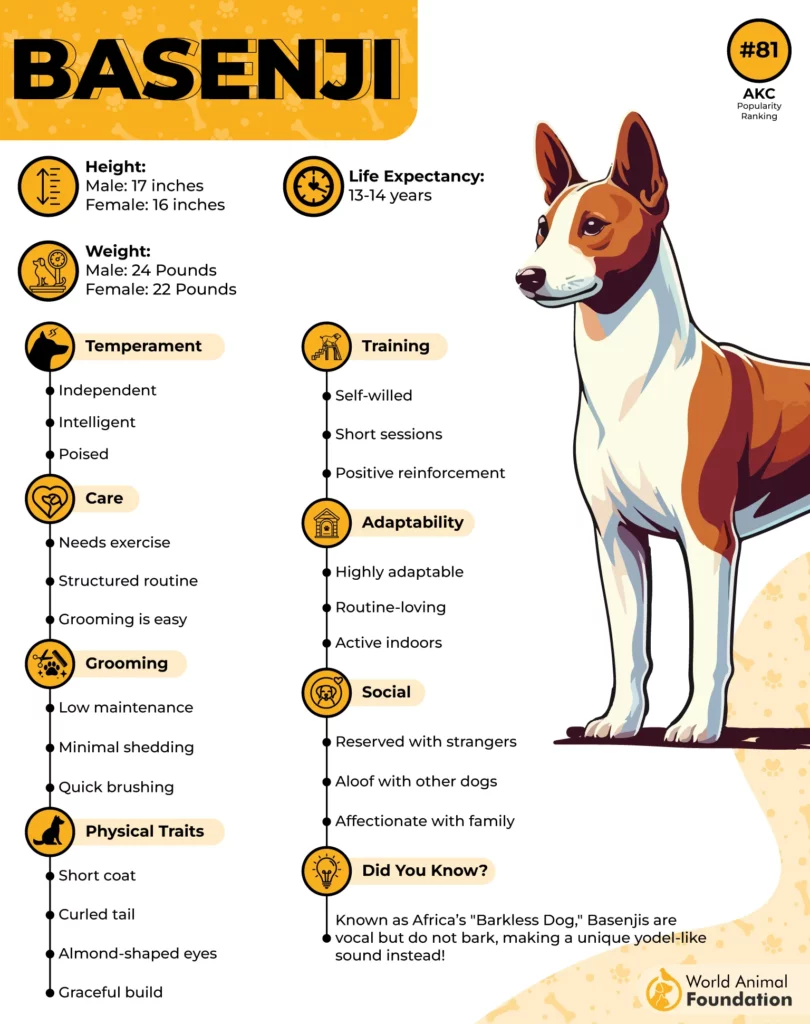
Minimal grooming needs
The Basenji’s grooming requirements are refreshingly light — occasional brushing is usually enough, as per WebMD. It rarely sheds heavily, and its skin tends to stay clean and flake-free. With no drooling or oily coat, upkeep is straightforward and mess-free.
Instinctively tidy behavior
Basenjis instinctively groom themselves daily, often licking their paws and wiping their face just like a cat. They avoid muddy patches and messy areas during walks. This innate neatness contributes to their long-standing reputation as a clean house dog.
2. Kerry Blue Terrier
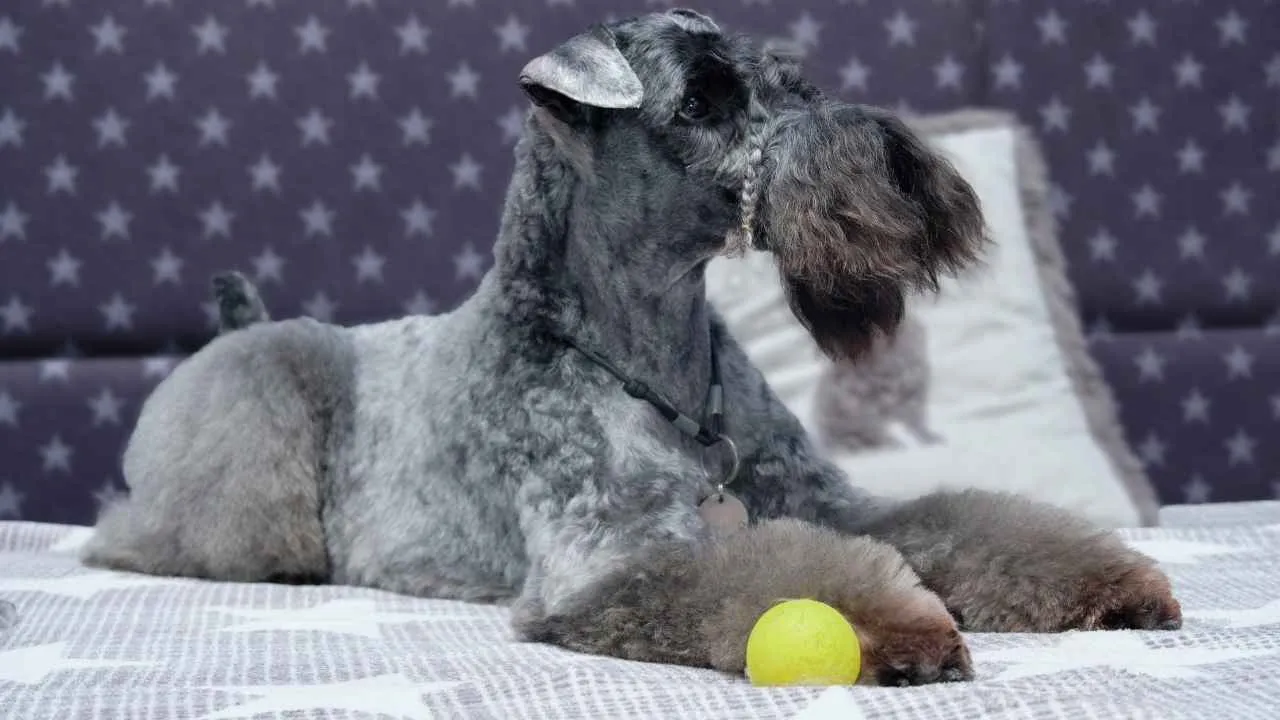
The Kerry Blue Terrier has a dense, curly coat that doesn’t trap oils or moisture the way other breeds’ coats do. This texture naturally resists buildup that leads to doggy odor. Even after activity, they often remain impressively fresh without frequent baths.
Unique skin chemistry
Unlike many breeds, their skin produces less oil, which plays a major role in how they smell. This low oil production limits bacteria growth, which is the main cause of that lingering doggy odor. It’s a subtle detail, but one that makes a huge difference indoors.
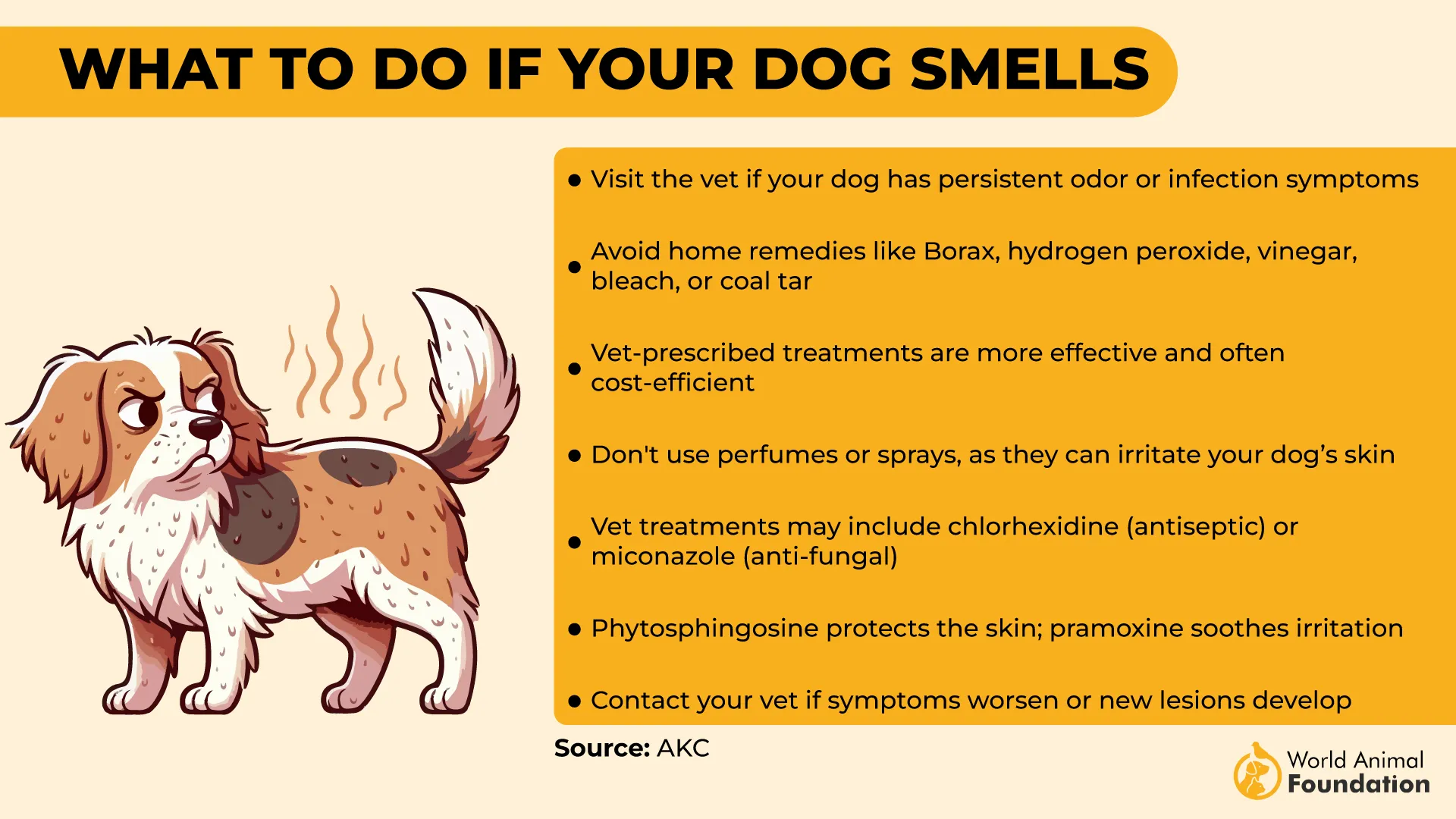
Regular grooming keeps things simple
Despite its odor-resistant traits, Kerry’s coat does require daily grooming to stay in good shape, as mentioned in WebMD. Trimming and brushing help prevent matting, which could trap smells over time. But with upkeep, they remain one of the most smell-free terriers you’ll come across.
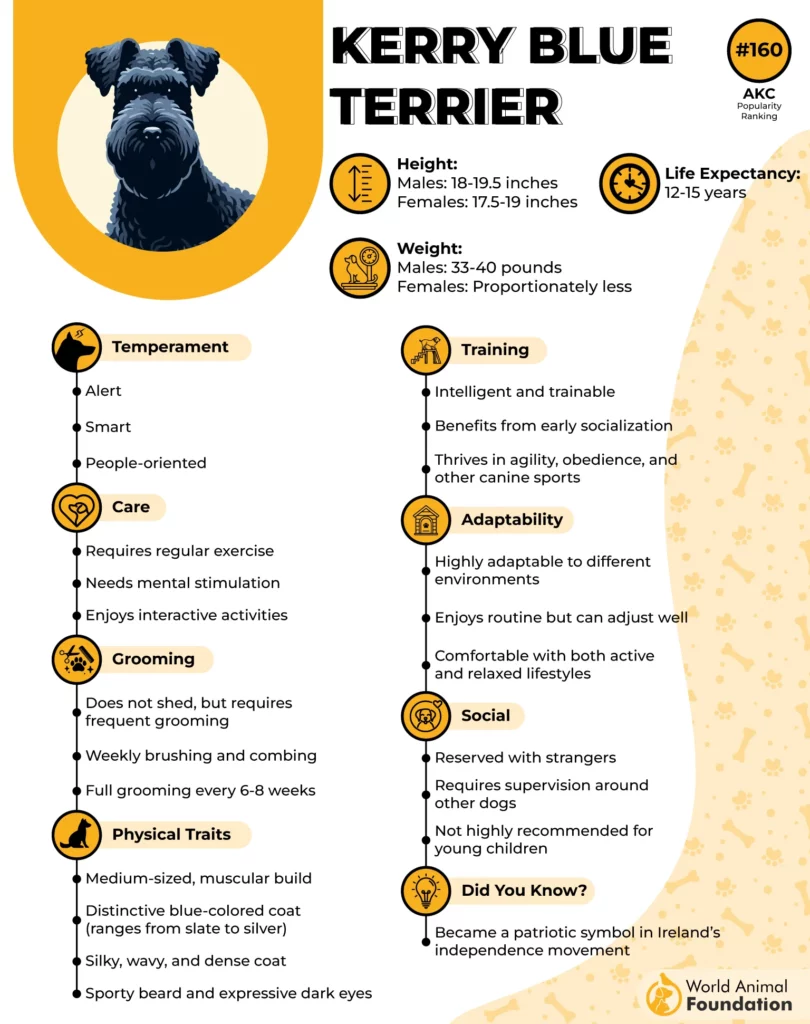
Not a drooler or messy eater
They’re also not known for drooling or sloppy eating, both of which contribute to household odor in other breeds. Their neat habits around food and water help keep living spaces clean. This adds another layer to why they stay relatively unnoticed by the nose.
3. Bichon Frise
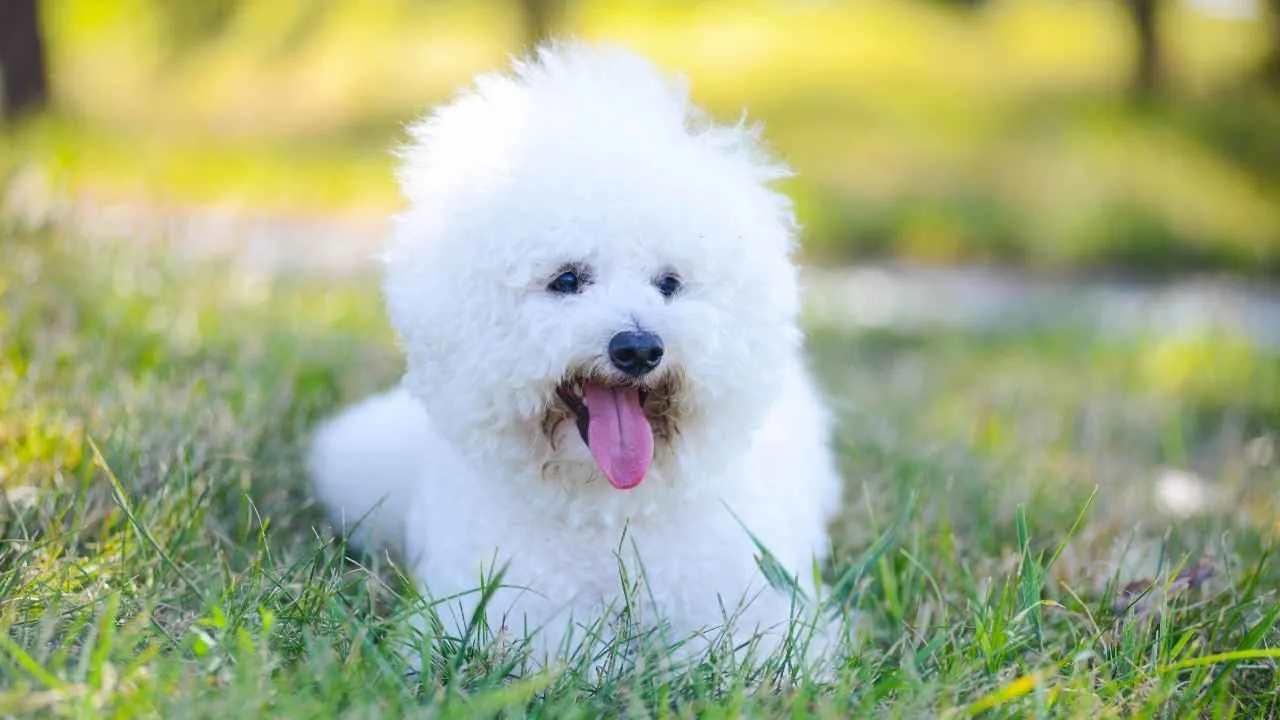
One of the main reasons Bichons stay odor-free is their naturally dry skin, which doesn’t produce the oils that often cause doggy smell. That absence of grease means their coat stays cleaner longer. It also makes them a great fit for sensitive noses.
Tight curls that repel debris
Their coat is made up of tight, springy curls that trap fewer particles from the environment. Dust, dirt, and outdoor allergens are less likely to cling to them. This unique texture also helps reduce that stale, trapped-smell buildup between washes.
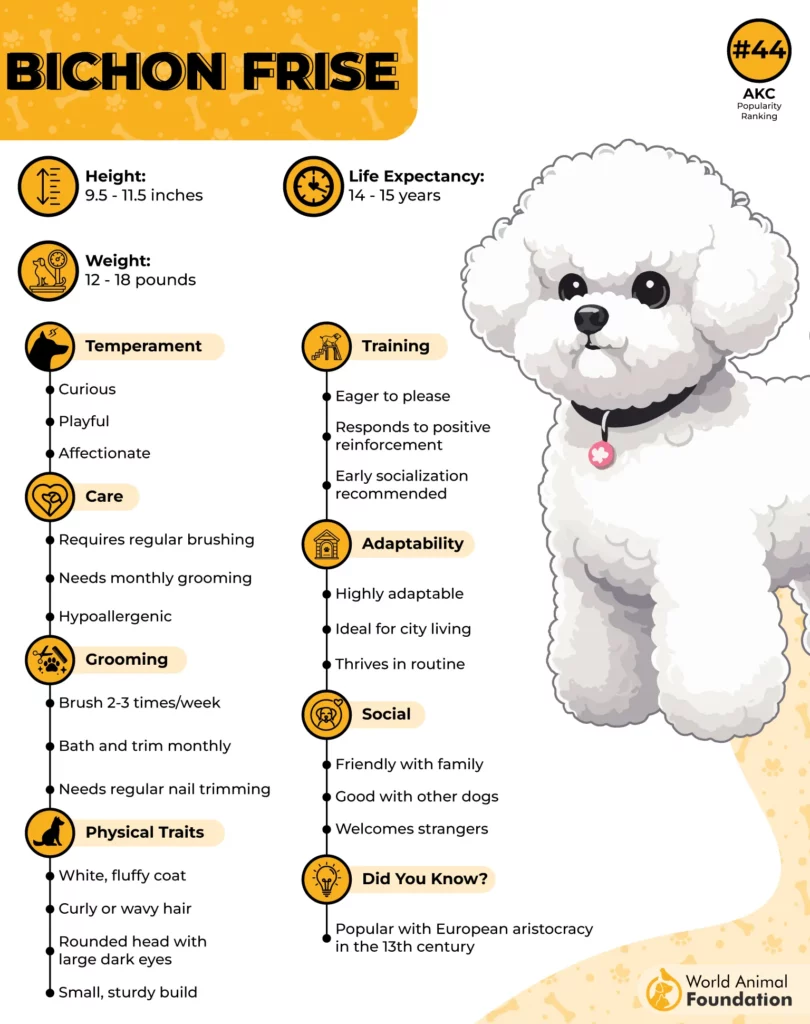
Sensitive skin keeps care in check
Because their skin is prone to allergies, Bichons often follow a strict grooming routine that involves gentle, fragrance-free products. This results in cleaner skin and coat conditions. It’s less about masking odor, more about preventing it altogether.
Clean habits shaped by health needs
Many Bichons are kept on hypoallergenic diets due to common sensitivities, which reduces yeast buildup and body odor. Even their tear staining is often monitored and cleaned daily. Their freshness is a result of both genetics and attentive upkeep.
4. Portuguese Water Dog
The Portuguese Water Dog’s dense, curly coat is waterproof and doesn’t hold on to smells the way some other double-coated breeds do. It’s designed to dry quickly, reducing the chance of odor buildup. This makes it well-suited for homes that prioritize a clean-smelling environment.
No Natural Oil Buildup
Unlike oily-coated breeds that tend to carry a musky scent, this breed produces minimal natural oil. That means there’s less residue left on furniture or fabric. Its skin also stays healthier when bathed periodically, without generating that “doggy smell” in between.
Thrives With Structured Care
While the coat does need trimming every few weeks, it doesn’t mat easily or collect debris when properly managed. Most owners opt for a professional grooming schedule to keep the curls tight and odor-free. Its coat care is more about precision than frequency.
An Active Breed With a Clean Streak
Portuguese Water Dogs are active swimmers, yet they stay impressively fresh even after long sessions in water. They don’t carry a lingering wet-dog smell, even post-adventure. Their coat dries fast and doesn’t trap bacteria the way heavier fur types do.
5. Chihuahua
One reason Chihuahuas avoid that typical dog smell is their low oil production. Their skin doesn’t release the excess sebum that often traps odor in other breeds. This makes them a surprisingly neat choice for indoor living.
Minimal surface for odor to cling to
With their compact size and tight coat, there’s simply less body surface for grime to accumulate. Dirt and moisture don’t have many places to hide, especially on the smooth-coated variety. Even long-coated Chihuahuas stay fresher with light maintenance.
Indoor lifestyle keeps odors in check
They thrive in indoor environments and don’t require long, messy walks that lead to trapped smells. Because they’re often carried or resting on laps, their exposure to dirt is naturally limited. Their routines support a cleaner coat by default.
Diet impacts their scent
Chihuahuas are known to have sensitive stomachs, which often leads owners to carefully manage their diet, as per Hypro Premium. A balanced, high-quality diet can minimize bad breath and skin issues. This close dietary control directly supports their low-odor reputation.
6. West Highland Terrier
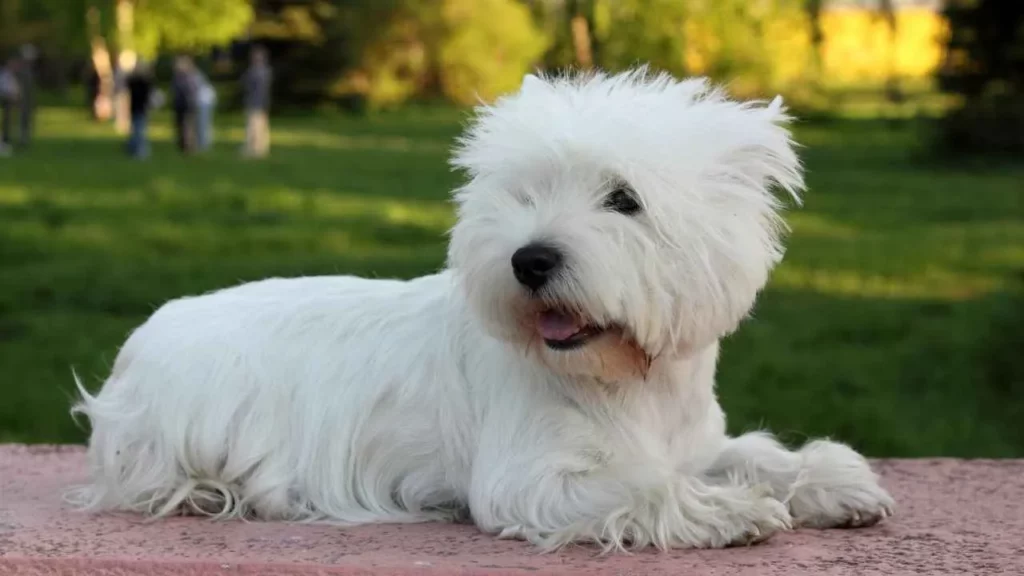
The Westie’s coarse outer coat resists absorbing moisture and odors, making it naturally low in doggy smell. Even after time outdoors, the coat stays surprisingly neutral. Its double-layered structure helps prevent the buildup of sweat and grime.
Dry skin, fewer odor issues
Westies are prone to dry, sensitive skin, which ironically works in their favor when it comes to smell. Because their skin produces less oil, there’s less chance of that musky scent developing. Fewer sebaceous secretions mean less odor overall.
Consistent grooming keeps things clean
They do require regular grooming, but not because of smell—more to keep their iconic white coat in shape, as per PetMD. Even without frequent baths, their scent stays minimal if brushing is kept up. A monthly bath is typically enough for maintenance.
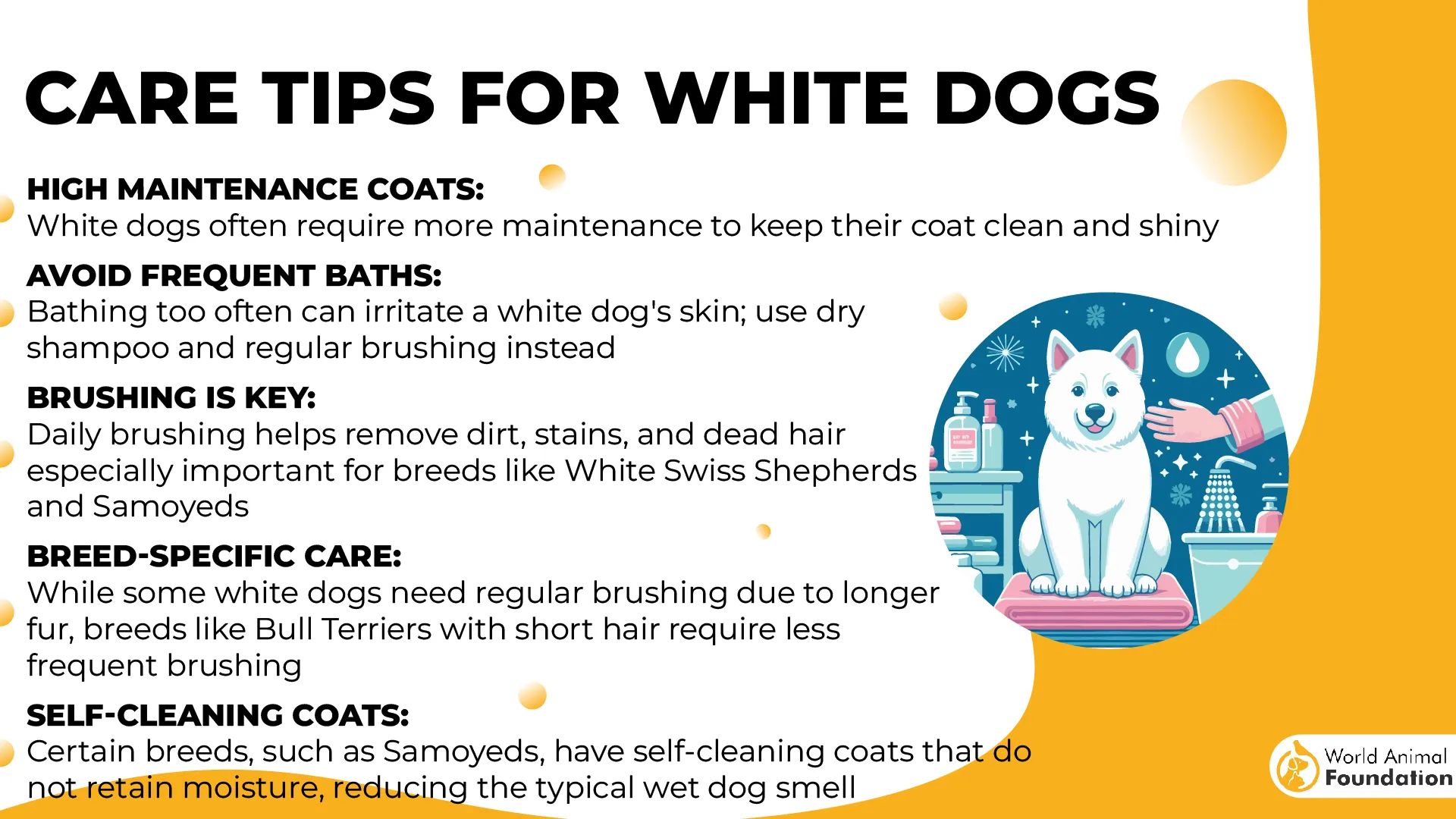
Clean indoor habits
Westies are naturally fastidious indoors and dislike soiling their living spaces. Their tendency to avoid wet or muddy terrain also reduces lingering smells. Many owners note how clean their bedding and play areas remain compared to other breeds.
7. Havanese
Havanese dogs have low levels of sebaceous oil production, which means they don’t give off that greasy smell some dogs are known for. This trait significantly reduces odor build-up on both their skin and coat. Even after being active, they rarely carry that “dog” scent indoors.
Airy, Non-Oily Coat Texture
Unlike dense or heavy-coated breeds, the Havanese coat is light and airy, which helps prevent moisture and bacteria from getting trapped. Its hair-like texture also allows better airflow around the skin. That alone plays a big part in odor control without extra effort.
Low-Odor Even With Full Coats
Even when left in their full, fluffy coat, Havanese rarely develop that musty smell common in long-haired breeds. Their coat doesn’t cling to outdoor scents or trap skin oils the same way double-coated dogs do. This makes them a smart choice for indoor lifestyles.
Skin pH Helps Reduce Scent
Another subtle but important factor is their neutral skin pH, which discourages excessive bacterial growth, the main source of dog odor. As a result, even with minimal bathing, they remain fresh-smelling. This biological balance keeps them clean in a way that’s rarely discussed.
8. Doberman Pinscher
Dobermans have tight, close-fitting skin that doesn’t trap moisture or debris, one of the reasons they rarely develop that musky odor common in other breeds. Their body doesn’t produce excess oils, so unpleasant smells simply don’t linger. This natural cleanliness sets them apart.
Dry-mouthed and drip-free
They’re not droolers, even after meals or exercise, which helps keep their sleeping areas and surroundings fresh. Without slobber or saliva buildup, bacteria have less chance to accumulate on their fur. That alone makes them easier to live with in close quarters.
Sleek coat with low maintenance
Their short, single-layered coat sheds minimally and doesn’t trap odor. It also dries fast after outdoor activity, reducing the chances of a damp dog smell. Occasional brushing is enough to keep their coat in good condition — no need for frequent deep cleans.
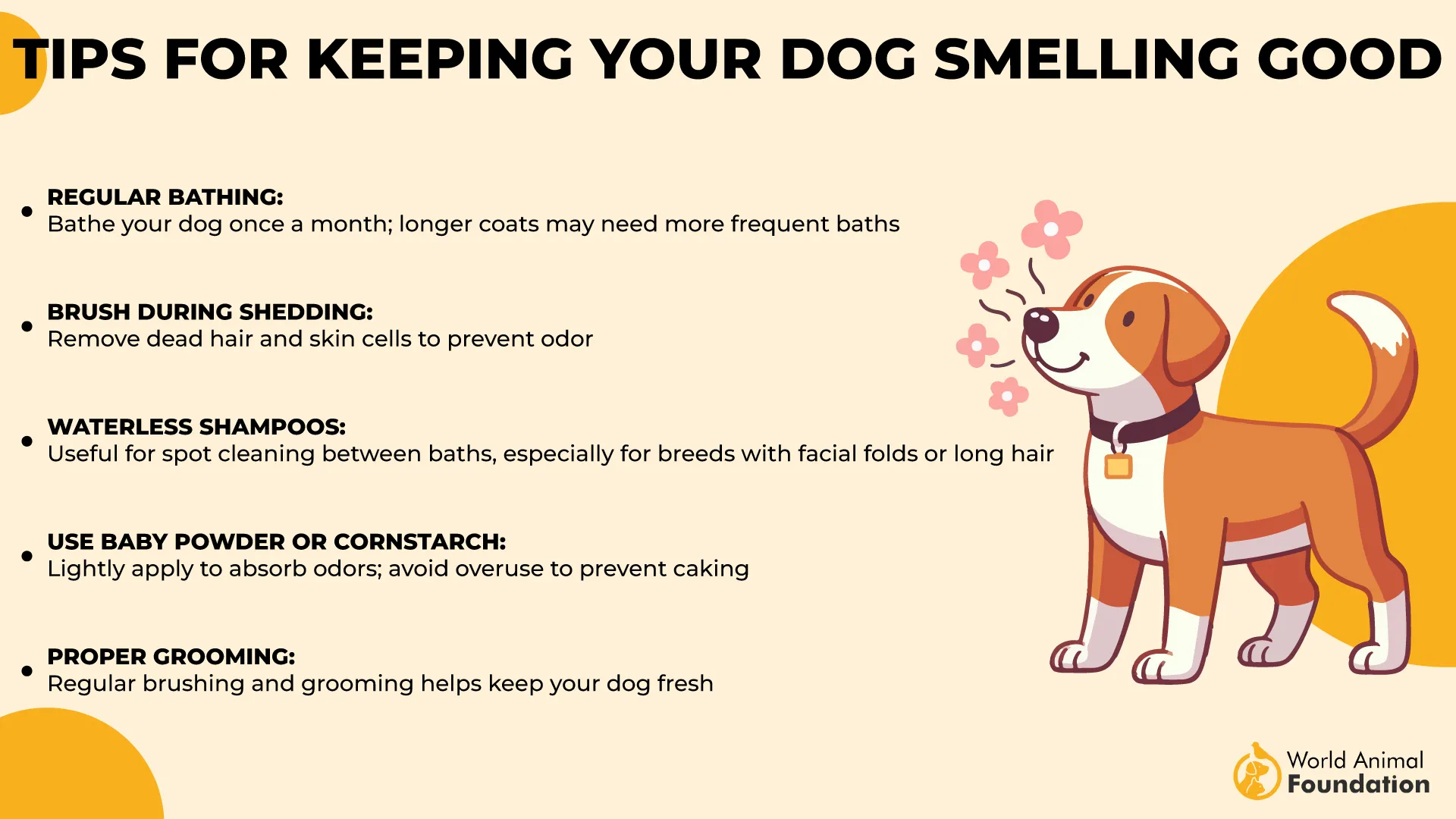
Clean habits and indoor manners
Dobermans tend to keep themselves neat and are relatively particular about where they rest or eat. They avoid rolling in dirt or dragging in grime from outside. Their cleanliness, paired with their quiet indoor presence, makes them surprisingly low-maintenance.
9. Coton de Tulear
Despite its soft, fluffy coat, the Coton de Tulear rarely carries that distinct dog odor. Its skin has a naturally dry texture, which helps prevent the buildup of oils that usually cause smell. Even after exercise, they tend to stay remarkably odor-free.
Coat That Resists Trapping Odor
The cotton-like coat doesn’t trap moisture or outdoor smells the way dense, oily fur does. Because of this texture, it avoids that damp-dog scent after rain or humid walks. Most owners notice their Coton always seems fresh, even without frequent baths.
Behavior That Helps Stay Fresh
Cotons tend to avoid mud and wet grass, instinctively steering clear of messy situations. They’re not big droolers, and they keep their bedding clean by nature. This makes their indoor presence neat and easy to manage.
Realistic Grooming Expectations
While they need brushing to avoid tangles, their coat doesn’t carry a greasy feel or musty smell. Bathing them every few weeks is typically enough to maintain coat health. You won’t deal with lingering odors on furniture or clothing between washes.
10. Schnauzer
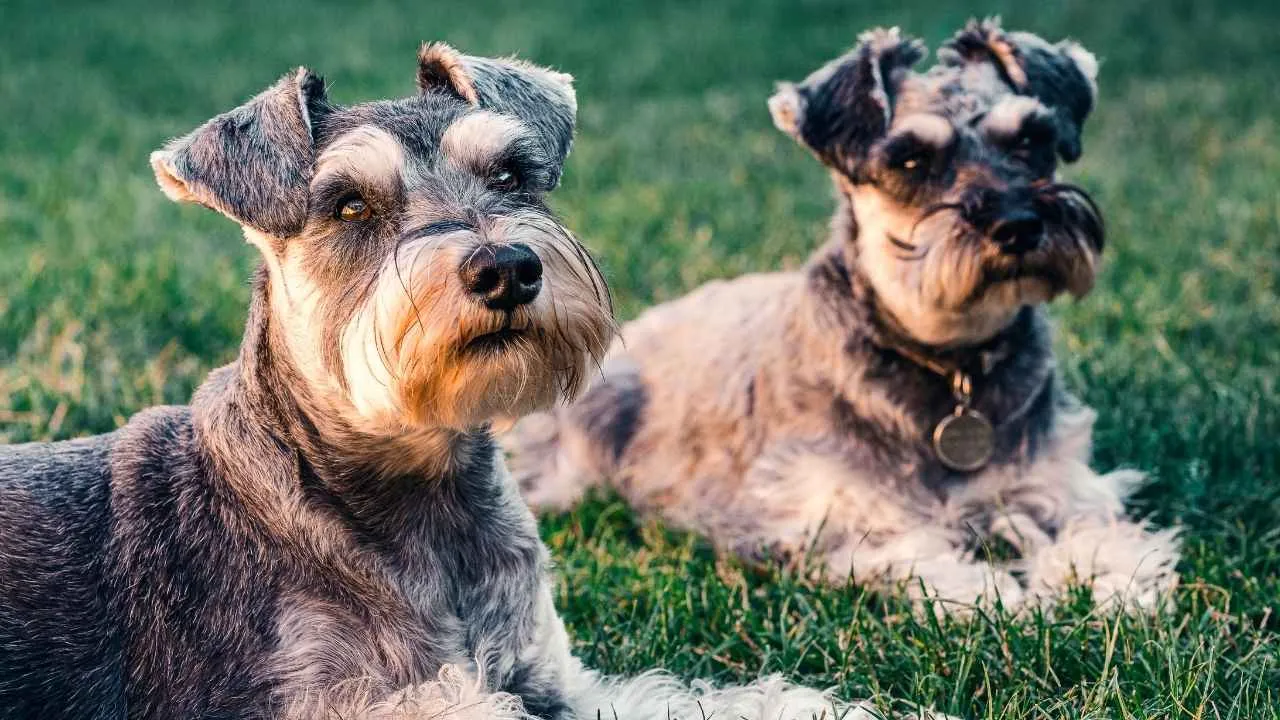
Schnauzers have a dense, wiry topcoat and soft undercoat that doesn’t hold onto smells the way oily fur often does. Their double coat naturally repels dirt and moisture. That barrier limits odor buildup between grooming sessions.
Whiskers with a purpose
Those iconic facial whiskers do more than give them a distinguished look — they help direct debris away from sensitive areas. That’s one reason their face often stays cleaner than other breeds. Less trapped grime equals less lingering smell.
Regulated skin oil production
Unlike some breeds that produce excess oil and develop a musky scent, Schnauzers maintain a balanced oil level. Their skin stays clean longer, reducing that stale “dog” smell that can settle into furniture. Bathing too often can disrupt this balance.
Clean habits from strong instincts
Originally bred for farm work, Schnauzers tend to avoid filthy environments unless truly provoked. They have a fastidious side — often waiting for clean spaces to rest and grooming themselves lightly after meals. These instincts add to their low-odor reputation.
Conclusion
Choosing a dog doesn’t mean you have to choose the smell that comes with it. Some breeds are just built differently—cleaner skin, less oil, tighter coats, and habits that lean naturally toward tidiness.
Whether you’re sensitive to scent or just like your home staying crisp and inviting, these breeds offer a solution. You don’t need sprays, deep cleans, or endless baths. You need the right match.
From the sleek Doberman Pinscher to the self-grooming Basenji, these dogs prove that a fresher home is possible—with fur, love, and zero stink.
Even in an urban environment, these low-odor breeds make great companions who won’t overwhelm your space—or your senses. Pick wisely, and your house will smell like a home, not a kennel.


